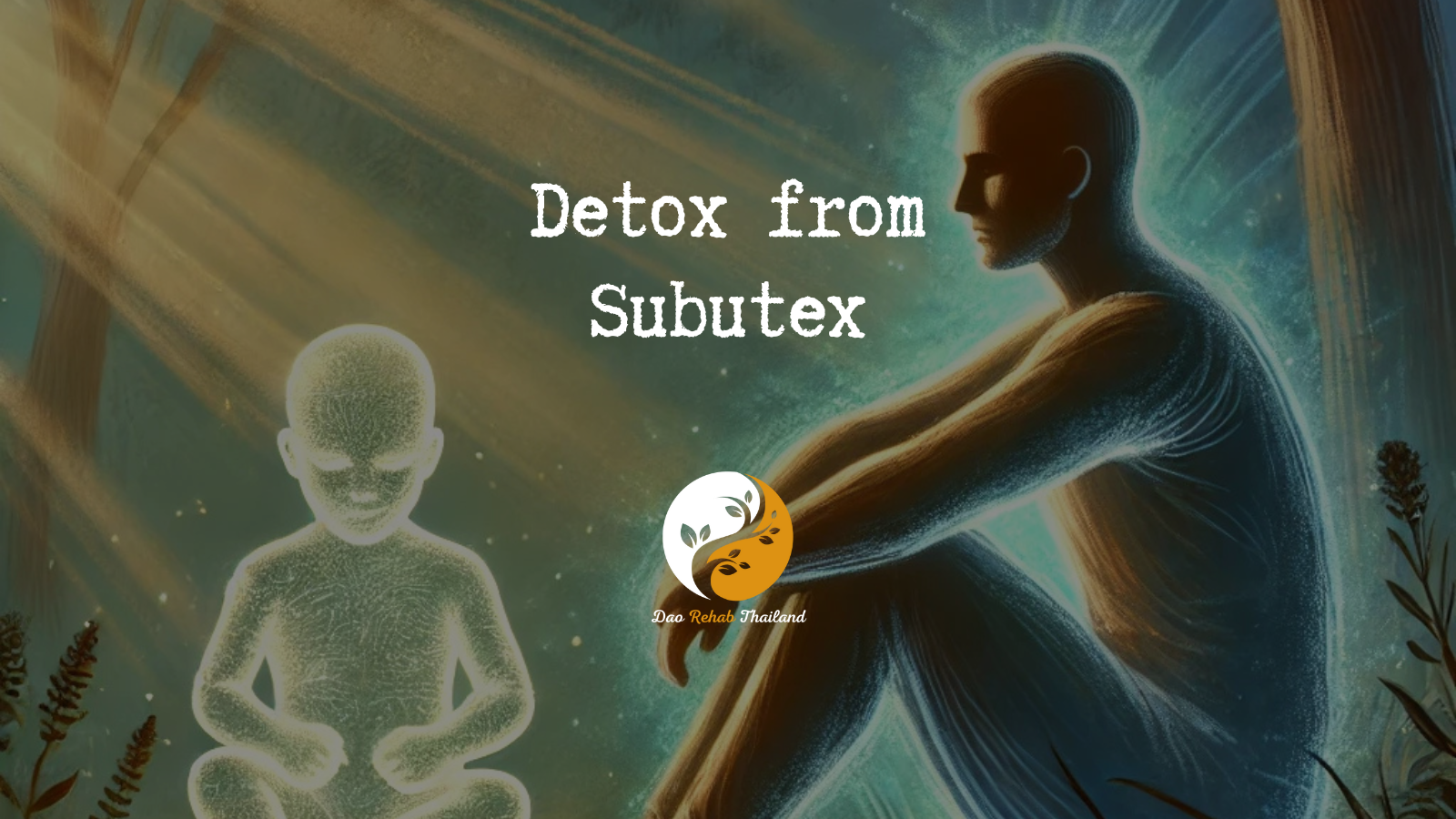
Prescription pills nearly killed me
Prescription pills nearly killed me

“Turning the impossible into possible”
"Detox from pills at a Luxury Holistic Center in Thailand and Israel"

Prof. Jordan Peterson - Prescription pills nearly killed me.
Since 2016, the professor had been taking benzodiazepines prescribed by his family doctor as a sleep aid and an anti-anxiety medication. They were taken as directed, twice daily, at a low dose of 0.25 mg. Although these seemed like relatively safe medications, the benzodiazepines gradually led to symptoms such as weakness on the left side, a sense of detachment from those around him, and a diminished ability to experience joy. When the anxiety worsened, and the dosage was increased, the situation only deteriorated further.
"Holistic Center for Trauma, Addiction, and Mental Imbalance Treatment in Thailand"
“Come to the beginning of the journey to freedom from addiction to alcohol, drugs, and pills, and rediscover your life within the quiet embrace of DaoTherapy Rehab in Thailand—where holistic healing meets empowering recovery.”
DaoTherapy Holistic Rehab
Key Elements of pills Detox:
Medical Supervision: pills must be conducted under medical supervision, as the body may experience withdrawal symptoms. These can include nausea, anxiety, muscle aches, and insomnia. A medical team will monitor and manage these symptoms to ensure the patient’s safety and comfort.
Holistic Therapies:
Holistic Therapies: Many detox programs incorporate holistic therapies such as mindfulness, yoga, and meditation to help individuals cope with stress and anxiety during the detox process. These therapies support the mind-body connection and contribute to overall recovery.
Tapering Process
Tapering Process: pills detox often involves a gradual tapering of the drug to reduce withdrawal severity. Doctors will slowly decrease the dosage over time to allow the body to adjust to lower levels of the substance.
Psychological Support:
Psychological Support: Like any addiction recovery process, detox from pills includes psychological support. This can involve counseling, therapy, or support groups to address the mental and emotional aspects of addiction.
Post-Detox Treatment:
Post-Detox Treatment: After completing detox, continuing treatment is crucial to prevent relapse. This often includes participation in ongoing therapy, group support, and the development of new coping strategies to maintain sobriety.
Stopping the use of benzodiazepines without gradual tapering led to immense suffering.
Since 2016, the professor had been taking benzodiazepines prescribed by his family doctor as a sleep aid and an anti-anxiety medication. They were taken as directed, twice daily, at a low dose of 0.25 mg. Although these seemed like relatively safe medications, over time, the benzodiazepines led to symptoms such as left-sided weakness, a sense of detachment from those around him, and a diminished ability to experience joy. When anxiety worsened and the dosage was increased, the situation only deteriorated further.
Stopping benzodiazepine use without gradual tapering led to immense suffering. Anxiety levels skyrocketed to unbearable peaks, and akathisia—a persistent sensation of tingling or burning that wouldn’t relent—set in. The professor found himself unable to sit, lie down, or relax. The relentless torment was unimaginable. Detox clinics were unable to offer an effective solution, and his condition continued to worsen.
Only in retrospect did the full impact of benzodiazepines on his life become clear. Beyond physical dependence, they created an emotional barrier and a feeling of isolation from those around him, especially his son. Muscle weakness and cognitive decline were also results of their use. The challenges reached a point where he lost the ability to type, climb stairs, or even remember how to lie down in bed.
The immense support from family and friends was crucial in his recovery process, though it wasn’t always enough. Ultimately, treatment at a specialized clinic in Serbia managed to stabilize his condition and alleviate the most severe symptoms. The professor emphasizes that benzodiazepine dependence is a silent epidemic that may be even worse than the opioid crisis. Use beyond a few weeks poses a significant risk of severe dependency and a prolonged, grueling withdrawal process.
A key takeaway from his story is that even intelligent, knowledgeable individuals are not immune to mistakes and downfalls in life. This is an important insight to remember and internalize, especially in the context of addiction. Critical thinking, expert advice, and unwavering support from loved ones are essential to overcoming personal crises of this nature.
Finally, the professor wishes to use his platform to raise awareness of the dangers of benzodiazepines and to prevent others from enduring the suffering he went through. He believes that bringing this issue into public discussion is crucial to reducing the problem’s scope and providing the necessary support to those struggling with dependency and addiction.

contact us
Contact us with your questions
We would love to speak with you! Feel free to reach out with any questions.

get in touch
Schedule a free consultation
Schedule a free consultation with our team and let’s make things happen!
Benzodiazepines: A Common Prescription Medication with Hidden Risks
In 2016, the professor began taking benzodiazepines, a common prescription medication prescribed by his family doctor as a sleep aid and anxiety reliever. He took them diligently as directed, twice a day at a low dose of 0.25 mg. Although benzodiazepines were considered relatively safe, over time, alarming symptoms began to appear, such as weakness on the left side of his body, a sense of detachment from those around him, and difficulty experiencing positive emotions like joy. What initially seemed like a reasonable medicinal solution gradually became a distressing and troubling problem.
Escalation: When Increasing the Dose Worsens the Situation
When the professor’s anxiety levels rose, he asked his doctor to increase the benzodiazepine dose, hoping to manage the symptoms. However, contrary to expectations, the higher dosage only made things worse. The anxiety became more severe and uncontrollable. It became evident that his body had developed a paradoxical reaction to the medication, where higher doses exacerbated symptoms instead of providing relief. This was a crucial turning point, leading him to understand that he needed to stop using benzodiazepines altogether, though the path was anything but easy.
Withdrawal: Unimaginable Suffering and Relentless Agony
The decision to discontinue benzodiazepines without tapering the dose had devastating consequences. The professor experienced anxiety levels that peaked beyond anything he had ever known. In addition, he developed akathisia, a condition marked by a constant sensation of electrical pricking or a sharp burning that never ceased. He couldn’t sit, lie down, or find respite from the relentless pain. The akathisia was a continuous torment, akin to being struck by a whip, with no escape from the agony. Even getting up and moving offered no real relief. This was a dark period of unimaginable suffering.
Seeking Solutions: The Journey Through Detox Clinics
In search of relief, the professor turned to specialized detox clinics, hoping to find an effective solution that would ease the withdrawal process and help him break free from benzodiazepine dependence. However, the clinics couldn’t provide an adequate solution to the problem. They mainly suggested switching between different types of benzodiazepines, which proved ineffective since they all acted on the same bodily mechanism. He left the clinics worse off. Psychiatrists warned that the akathisia could persist for up to two years. The thought of such prolonged suffering was beyond what he could bear, yet he knew he had to continue searching for a solution, though the process was frustrating and filled with disappointments.
The Effects of Benzodiazepines on Life: Full Consequences Unveiled in Retrospect
Although the professor was aware of his physical dependency on benzodiazepines, the profound impact on his life became clear only in retrospect. Beyond physical symptoms, the benzodiazepines created an emotional barrier and a sense of isolation from those closest to him, especially his son. They caused a significant decline in his ability to form genuine, deep connections with loved ones. Additionally, he experienced puzzling muscle weakness and cognitive impairment. He lost the ability to perform basic tasks like typing on a keyboard, climbing stairs, and even lying down in bed at night. Benzodiazepines affected every aspect of his life in a destructive way.
The Power of Support: Family and Friends as an Anchor Amid the Storm
Throughout the difficult withdrawal process, the immense support the professor received from his family and friends was crucial to his recovery. He describes it as a “flood of support” that surprised him with its intensity. Friends and family rallied beyond expectations, helping in every way and standing by him in his darkest moments. Although the support alone couldn’t eliminate the physical torment, it gave him the strength to continue fighting and not give up. The dedicated assistance from his close circle was essential for maintaining sanity and hope.
Breakthrough: Specialized Treatment That Turned the Tide
After many turns between clinics and failed treatment attempts, the professor finally arrived at a specialized clinic in Serbia. There, under the guidance of an experienced anesthetist, the medical team managed to adjust the medication regimen in a way that led to a significant improvement in his condition. Within a short time, most of the severe symptoms disappeared. While he still felt some weakness, he regained the ability to think clearly and function normally. The change was surprisingly rapid, almost unbelievable. Despite concerns that the improvement might be temporary, the professor found himself filled with renewed hope. This was a critical turning point in his journey.
Benzodiazepines: A Silent and Deadly Epidemic Worse Than Opioid Addiction
Through his personal struggle with benzodiazepine withdrawal, the professor gained a deep understanding of the lurking danger of these drugs. He emphasizes that it is a silent and insidious epidemic, potentially worse than the crisis caused by opioid addiction. Benzodiazepines are relatively easily prescribed and perceived as safe, yet taking them for more than a few weeks poses a significant risk of developing dependence. The likelihood of dependency is around 50% after just one month, rising considerably with prolonged use. This means that a substantial portion of benzodiazepine patients are likely to become dependent and experience a prolonged and agonizing withdrawal process. The professor believes that public awareness must be raised, and the potential dangers of overuse must be highlighted.
Life Lessons: No One Is Immune from Mistakes and Hardships
Reflecting on his experience, the professor acknowledges that even educated and knowledgeable people can fall victim to medication dependence. As a psychologist and addiction researcher, he hadn’t fully grasped the risks, and now seeks to share his personal lessons to prevent others from undergoing a similar ordeal. The main message is that no one is immune from mistakes, downfalls, and life disasters. This insight is valuable on its own, but it becomes crucial when it comes to addiction. The professor stresses the importance of critical thinking, thorough examination, consultation with experts, and, equally important, genuine and loving support from one’s close environment. These are the keys to surviving deep personal crises without losing one’s way.
Spreading the Message: Using His Platform to Prevent Others’ Suffering
Recognizing the significance of his experience, the professor now aims to use his public platform to raise awareness of the dangers of benzodiazepine overuse. He hopes that by sharing his personal story, with all its associated hardships and pain, he can help prevent others from enduring the suffering he had to endure. His goal is that people facing similar challenges can learn from his experience, receive necessary guidance and advice, and, perhaps most importantly, know they are not alone in their struggle. Ultimately, the professor views bringing this issue into public awareness as an important mission, one that can bring about real change in the scope of the problem and the support provided to those dealing with it every day.








